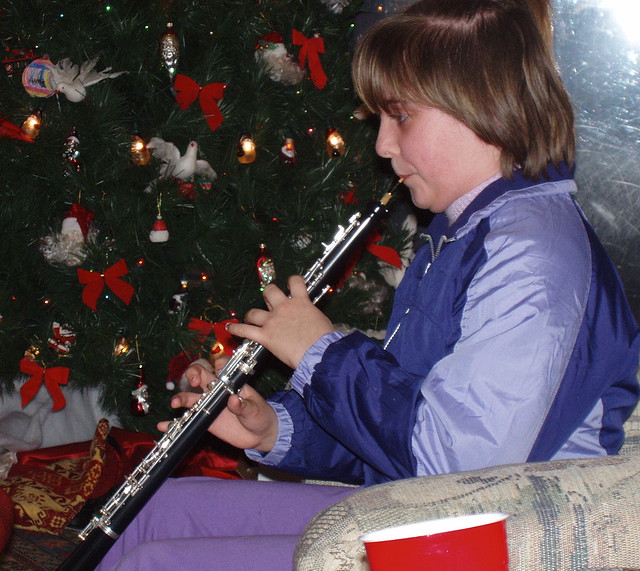 |
| Oboe Player - Photo by liberalmind1012 |
There are just certain instruments that are not suited for children dentally or temperamentally, and this would be later on discovered by the children. Many would be a musician is handicapped from the start and will never be any more than mediocre in his field. Dentists who want to provide good service for their patients must remember to tell would be musicians, music teachers, and parents that some dental problems are caused by the playing of wind instruments.
Before the parents invest time, effort, and money to this musical pursuit, a dental consultation should be done first. There are a lot of dentists who claim that single reed instruments are usually to blame for cases of body tissue illnesses experienced by wind instrumentalists. The lower lip is supported by the teeth, and unfortunately, it is also here that a lot of weight from the instrument is applied. Applying pressure on the teeth reduces the blood circulation in the affected bone area.
The upper teeth may also be misaligned due to the pressure exerted by the lower jaw onto the upper teeth. Compression of the lips against the upper and lower teeth is the result of playing brass instruments like a trumpet. Tooth mobility may come as a result of playing these instruments for extended periods of time. A short upper lip prevents a person from playing the flute well and comfortably, while irregular teeth cause a person's lips to hurt while he is playing the oboe or bassoon.
Dental problems may arise because of string instruments also. Certain studies indicate that faulty bite is a common problem of violinists since a lot of pressure is put on their jaw when they play. These dental problems can be prevented if an oral examination is given to would be musicians. Proper early recommendations can ensure dental suitability and oral health so that a would-be musician is not needlessly handicapped in playing his or her favorite musical instruments, he said.
Getting check-ups before anything else is definitely a great way to make sure you don't get complications in the latter stages of life. Seeing your dentist beforehand is especially true when it comes to playing wind instruments. Seeing a dentist is never a bad thing.
|

No comments:
Post a Comment